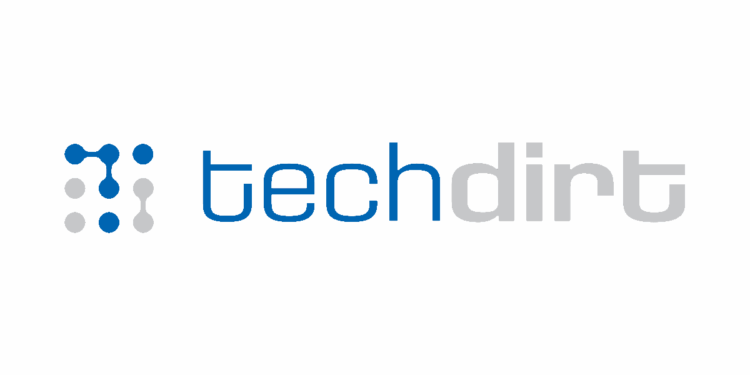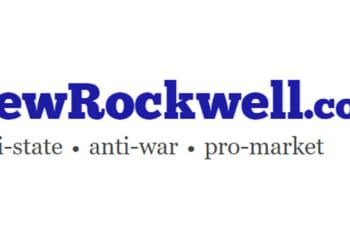from the turn-the-volume-up dept
It has been frustrating, to say the least, to watch many of the big Silicon Valley tech firms bow down to Trump and do his bidding, especially when it directly contradicts things they’ve said and done in the past. I’ve tried to explain to tech company execs why this doesn’t end well for them, but it seems it’s a lesson they’re going to have to learn from… what’s that they say…? Oh right, from “first principles.”
Silicon Valley comms expert Aaron Zamost has a new piece in the New York Times calling out the big tech companies for their cowardice in the face of authoritarianism. As he says, “this is how Silicon Valley lost its spine.”
It’s hard to square the idealistic YouTube of the late 2000s with the one that in September paid President Trump $24.5 million to settle a meritless lawsuit over his post-Jan. 6 account suspension.
Big Tech once fought the good fights. Google in 2007 forced the Federal Communications Commission to impose openness conditions on some of the country’s most valuable airwaves, paving the way for the mobile ecosystem we take for granted today. Twitter filed lawsuits to be able to publicly disclose how often government agencies requested user data. Apple in 2016 refused orders to help the F.B.I. unlock an iPhone, defending user privacy even under government pressure. These actions took place under presidents of both parties but shared a common goal — they put the needs of users ahead of the interests of those in power.
To paraphrase the venture capitalist Reid Hoffman, the Silicon Valley of the early 2010s was a mind-set, not a location. Its leaders saw themselves as revolutionaries: fighting for everyday people, resisting entrenched authority, all while creating technology that pushed society forward. And the products matched the posture — cellphones untethered from carriers, cars that didn’t run on gas, and pocket-size credit card readers that let anyone start a business.
So what happened? As Zamost notes: “courage doesn’t scale.”
The answer is simple, if dispiriting: For tech companies, courage doesn’t scale.
Google, Apple and their peers now act like the self-preservation-obsessed incumbents they once disrupted. They move slower, talk safer and patrol the moat. They’ve traded risk for complacency — too afraid of offending the president, losing access or inviting a subpoena. Big Tech now serves power before it serves its users.
This is such an important point in a world where companies are desperate to hyperscale, but where scale creates all kinds of new problems. One of those problems, it appears, is that companies are less willing to stick their necks out. Less willing to stand on principle. And that means they can be rolled by an authoritarian who threatens their power.
This is, perhaps, another angle on a number of old axioms about big companies and little companies. It’s another pass on “small companies innovate, big companies litigate.” Or how big companies engage in political entrepreneurship over market entrepreneurship. It’s also at the root of enshittification, where the focus is on how those companies can extract more value from everyone, rather than unleashing more value for the world.
But it’s an important observation about this industry. The biggest players, who came up in a world where they really were disruptive and willing to stand up for the right thing, are now a lot less likely to do so. They may have more power, but courage doesn’t scale with power. So now they act protective of their power, which means kowtowing to anyone who might try to take it away.
And, with each capitulation, the next one becomes easier. They’re all able to be cowards together.
It leads to pathetic, embarrassing situations like this:
Meta is the most egregious example. It sprinted to announce that it was dismantling its fact-checking system before Mr. Trump returned to office, then loosened its hate-speech rules in the name of “mainstream discourse.” By the end of January, Meta had reached a deal with Mr. Trump, agreeing to pay $25 million to settle his lawsuit over being suspended from Facebook and Instagram in the wake of Jan. 6. All before Mr. Trump had spent 10 days back in office.
The surrender is now routine. In April, Amazon publicly quashed reports that it would display the cost of Mr. Trump’s tariffs on product pages. Apple recently caved to pressure from Attorney General Pam Bondi and pulled an app that alerted users to nearby ICE agents. This is the same Apple whose chief executive, Tim Cook, in 2017 said, “Apple would not exist without immigration,” and quoted Martin Luther King Jr. in criticizing Mr. Trump’s Muslim ban.
The biggest, wealthiest companies in the world groveling, capitulating, and (in some cases) enabling the least popular president in decades. All because he nakedly threatens their own power. It’s pure cynicism over principles. From companies who spent so many years telling us how principled they were.
As Zamost notes, this is really bad in a variety of ways. Having tech actually work well for people, not just as an extractive tool for billionaires, is kind of important. And the big tech players are making it clear that they’re not the ones to rely on for that:
Major changes are coming whether we like it or not — to the economy, to culture, to how we live and work. This is not the time for faith in tech to be at such lows. Adoption depends on public trust, not just in the products themselves, but also in the people and principles behind them. Unfortunately, the tech industry’s leaders have become its worst spokespeople. The problem isn’t their messaging. It’s their credibility.
For years, Silicon Valley symbolized progress. Its retreat from its core values leaves no clear heir — no other industry fights for the future in the same way. When tech is the villain instead of the hero, the future feels leaderless. And a country that stops believing its innovators can make the world better stops believing in much else, too.
Innovation should still be a force for good. It should be an enabling tool for good. But as these companies have grown, as they’ve centralized and consolidated power, that made them targets. Their own scale created their own weak spot. And Trump exploited it.
I am still optimistic that newer upstarts that are built from the ground up to decentralize things and put power back in the hands of users can take up that mantle. But these old guard tech giants had every resource, every advantage, and every opportunity to hold the line. Instead, they chose to abandon the principles that made them matter in the first place. They torched their own credibility for temporary protection from a petty autocrat. That’s not just disappointing—it’s unforgivable.
Filed Under: capitulation, cowardice, donald trump, principles
Companies: apple, google, meta












